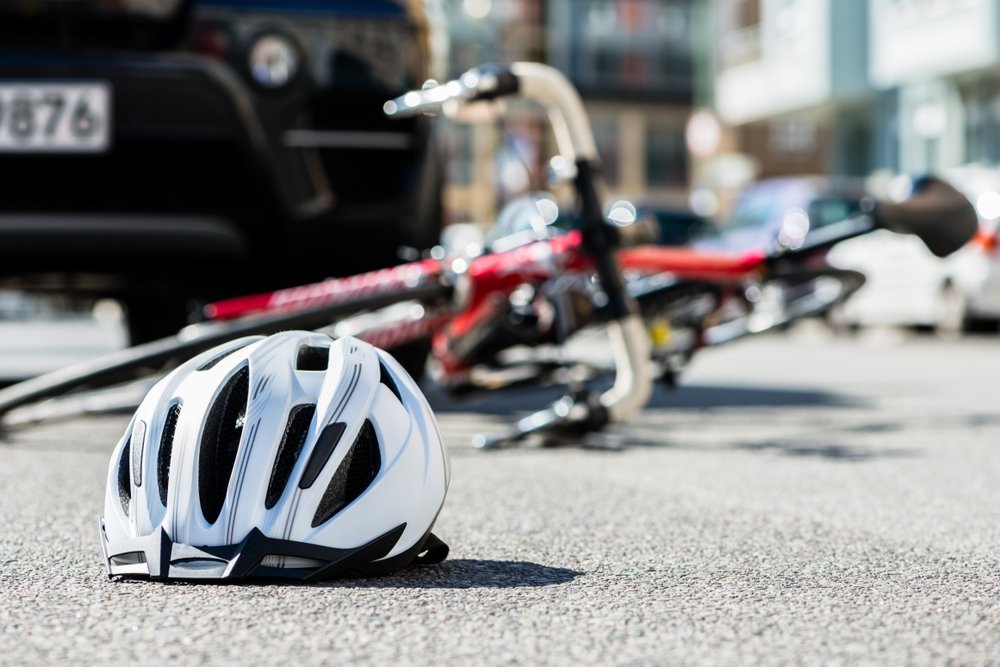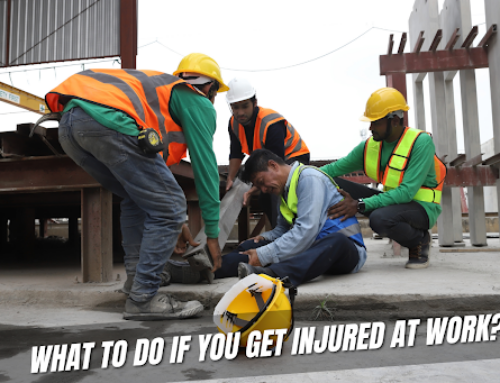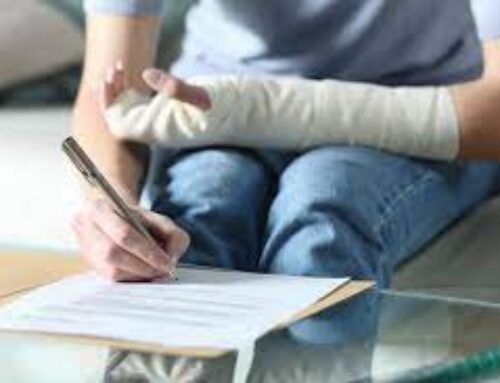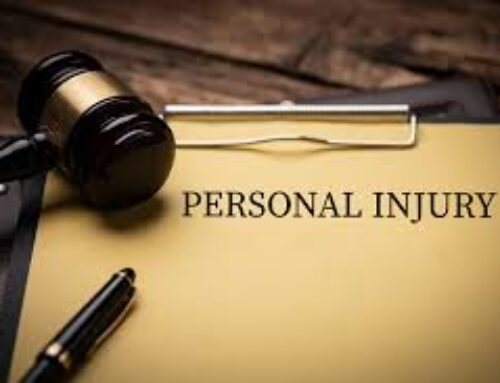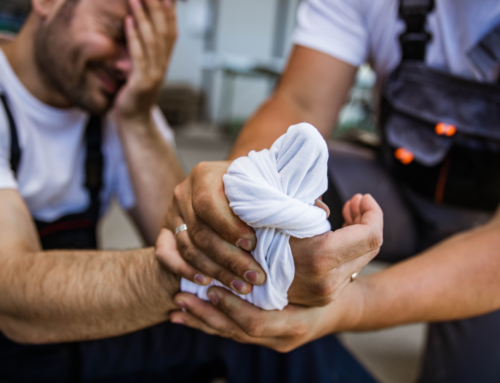Bicycle accidents can lead to severe injuries and financial hardships. Understand the legal options available to seek compensation and hold responsible parties accountable. This post explores suing for a bicycle accident and informs why seeking legal guidance is essential.
Understanding Legal Options After a Bicycle Accident
After a bicycle accident, victims may face medical bills and lost income. Knowing how to navigate the legal system can help them recover damages. Understanding legal options empowers individuals to make informed decisions about pursuing compensation.
Do you need a Personal Injury Lawyer?
Hire a personal injury lawyer is necessary after a bicycle accident. While some may handle their claims alone, consulting with a legal expert can offer valuable support and insight. This section explores factors to consider when hiring a personal injury lawyer.
Factors to Consider Before Suing for a Bicycle Accident
Severity of Injuries Sustained in the Accident
- It’s essential to assess the severity of injuries after a bicycle accident.
- Minor injuries may not require legal action, but severe ones might.
- Consider medical treatment, impact on daily life, and quality of life.
- Determine if seeking compensation through legal means is necessary.
The Complexity of the Legal Process Involved in Filing a Lawsuit
- Filing a lawsuit for a bicycle accident involves a complex legal process.
- Legal proceedings can be intricate, requiring knowledge of local laws.
- Factors like liability determination and evidence collection add complexity.
- Understanding legal terminology and procedures is crucial for success.
- Consider consulting a legal professional to navigate the complexities effectively.
Potential Compensation Available for Damages
In considering legal action after a bicycle accident, it’s crucial to grasp the potential compensation for damages. This could encompass various losses and expenses from the incident, such as:
Medical expenses: Covering bills linked to injuries, like hospital stays, surgeries, medications, and ongoing treatments.
Lost wages: Compensation for missed work or reduced earning capacity due to the accident.
Pain and suffering: Addressing physical discomfort and emotional distress stemming from the incident and injuries.
Property damage: Reimbursement for repairs or replacements of damaged property, such as bicycles.
Other expenses: Include transportation costs to medical appointments or home modifications necessitated by disability.
Understanding these potential compensations aids in assessing the accident’s financial ramifications and making informed decisions about pursuing legal recourse. Consulting with a personal injury lawyer can offer further insights into your entitlements and avenues for seeking compensation.
Benefits of Negotiation in Settling Bicycle Accident Claims
Negotiating settlements for bicycle accident claims can bring several advantages to all parties involved.
Efficient Resolution: Negotiation often results in quicker resolutions to legal battles, saving time and resources for both sides.
Cost-Effective: Settling through negotiation typically incurs lower legal fees and court expenses than pursuing a lawsuit, making it a budget-friendly option.
Control Over Outcome: Negotiation empowers parties to have a say in the final resolution, unlike trials where the decision rests with a judge or jury, ensuring a more satisfactory outcome.
Preservation of Relationships: Negotiation fosters a cooperative environment, helping maintain positive relationships and avoiding unnecessary conflict that can arise from litigation.
Confidentiality: Settlement negotiations can remain private, safeguarding sensitive information and avoiding public exposure.
Benefits of Hiring a Personal Injury Lawyer
Expertise in Navigating the Legal System
Understanding legal processes can be challenging for many. Hiring a bicycle accident attorney provides access to experts who comprehend the complexities of personal injury law. These professionals efficiently handle all aspects of your case, from gathering evidence to presenting arguments in court.
Advocacy and Representation in Negotiations and Court Proceedings
A personal injury lawyer represents their client’s best interests during negotiations with insurance companies and in court. They possess the skills and experience to negotiate effectively on your behalf, striving for fair compensation for your injuries and losses. They present compelling arguments and evidence to support your case, aiming for the maximum compensation you deserve.
Maximizing Compensation and Protecting Legal Rights
A personal injury lawyer works diligently to maximize the compensation for your injuries and losses. They assess the full extent of your damages to determine the appropriate value of your claim. With their negotiation skills and legal knowledge, they strive to ensure you receive fair and just compensation while protecting your legal rights. They advise you on your options and advocate for your interests every step of the way.
Alternatives to Hiring a Bicycle Accident Attorney
Representing Yourself in Small Claims Court
Consider presenting your case in small claims court if your injuries and damages are minor. This option is cost-effective and requires minimal legal fees. However, ensure you understand the court procedures and requirements before proceeding.
Seeking Assistance from Legal Aid Organizations or Pro bono Services
Explore free or low-cost legal aid organizations and pro bono services if you have limited financial resources. These entities provide access to a qualified bicycle accident attorney who can offer guidance and representation for personal injury cases. While availability varies, they can be invaluable resources for legal assistance.
Exploring Mediation as an Alternative Dispute Resolution Method
Mediation involves a neutral third party who discussions to help parties find a mutually acceptable solution. This method is favored for its cooperative nature and potential to maintain positive relationships.
Advantages of Mediation
Promotes Communication: Mediation provides a structured platform for open dialogue, allowing parties to voice their concerns and interests directly.
Empowers Parties: Unlike litigation, which relies on decisions made by a judge or jury, mediation gives parties control over the outcome, enabling them to create customized solutions according to their preferences.
Cost-Effective: Mediation typically incurs lower expenses than traditional litigation, making it accessible to individuals seeking an affordable resolution.
Process Overview
- The mediator sets ground rules and outlines the mediation process to all involved parties.
- Each party shares its viewpoint and listens to the other side’s perspective.
- Parties engage in constructive negotiation facilitated by the mediator, exploring potential compromises.
- The mediator helps draft a formal agreement detailing the resolution’s terms.
Considerations for Mediation
Voluntary Participation: Mediation requires all parties’ voluntary involvement, ensuring commitment to the process.
Confidentiality: Mediation discussions are confidential and cannot be disclosed in subsequent legal proceedings, encouraging open communication.
Impartial Mediator: Selecting an experienced mediator is crucial for a fair process.
Exploring Legal Aid Options for Bicycle Accident Victims
Legal aid options can be invaluable for bicycle accident victims facing legal challenges. Here are some avenues to consider:
Nonprofit Legal Aid Organizations:
These organizations offer free or low-cost legal assistance to individuals with limited financial means. They can guide you in filing claims, negotiating settlements, or representing clients in court.
Pro Bono Services:
Many law firms dedicate resources to pro bono work, offering services at no cost to those in need. This can be a helpful option for victims unable to afford traditional legal fees.
Bar Associations:
Local bar associations may run programs connecting individuals with pro bono attorneys or legal aid resources. They can offer referrals and information on accessing legal assistance in your area.
Community Legal Clinics:
These clinics often provide free consultations or workshops on various legal matters, including personal injury law. They can offer valuable insights and resources to help victims understand their rights and options.
Exploring these legal aid avenues can empower bicycle accident victims to navigate the legal process effectively and seek fair compensation for their injuries and losses.
Role of Insurance Companies in Bicycle Accident Claims
Insurance companies play a pivotal role in bicycle accident claims. Here’s a breakdown of their typical procedures:
Investigation:
After an accident, insurance companies conduct detailed investigations to determine who is at fault and assess the extent of damages. This involves gathering evidence, interviewing witnesses, and reviewing police reports to understand the accident’s circumstances.
Communication:
Insurance adjusters interact with accident victims to collect information and negotiate settlements. They may request medical records, expense documentation, and other relevant details to assess the claim’s worth.
Settlement Offers:
Insurers may propose settlement offers to resolve claims outside of court. These offers usually involve a monetary sum for releasing the insurer from future liability related to the accident.
Legal Representation:
In certain cases, insurance companies offer legal representation to their policyholders if a claim escalates to litigation. This legal support protects the policyholder’s interests and counter liability claims.
Dispute Resolution:
If disagreements arise regarding liability or claim value, insurers may resort to dispute resolution methods like arbitration or mediation to achieve an out-of-court resolution.
Pre-Litigation Settlement Options for Bicycle Accident Cases
After a bicycle accident, individuals often seek compensation for their injuries and damages. Instead of going to court, many cases are resolved through pre-litigation settlement options. These alternatives save time and money.
Negotiated Settlements
Parties, often represented by their insurance companies, negotiate to reach an agreement. This allows both sides to discuss the accident, assess damages, and agree on compensation. It involves less confrontation than going to court and allows both parties to control the process.
Mediation
A neutral mediator helps parties communicate and find solutions. This method is less adversarial than litigation and often results in quicker resolutions. Parties have more say in the outcome, leading to better relationships afterward.
Arbitration
An arbitrator hears both sides and makes a decision. It’s like a trial but more efficient and private. However, the decision is usually final, so it’s essential to consider it carefully.
Direct Negotiations with Insurers
Victims can negotiate directly with insurance companies by submitting a demand letter. This approach can be effective but requires caution and legal guidance.
Small Claims Court Process for Bicycle Accident Claims
If you’re considering filing a claim for a bicycle accident, small claims court may be an option for pursuing compensation.
1. Filing the Claim:
- Start by filling out the necessary paperwork, which typically includes a complaint form outlining the details of the accident and the damages you’re seeking.
- Pay the required filing fee, which varies depending on the jurisdiction.
2. Serving the Defendant:
- After filing your claim, you must serve the defendant with a copy of the complaint and a summons to appear in court.
- This can typically be done by mail, process server, or personal delivery.
3. Preparing for Court:
- Gather evidence of the accident, such as
- Witness statements
- Photographs
- Medical records
- Repair estimates
- Organize your evidence and prepare to present your case in court.
4. Attending the Hearing:
- Both parties will appear before a judge on the scheduled court date to present their arguments and evidence.
- Be prepared to answer questions from the judge and respond to any counterarguments from the defendant.
5. Receiving the Judgment:
- After hearing both sides, the judge will issue a judgment.
- If the ruling favors you, you could receive compensation for the damages incurred.
6. Enforcing the Judgment:
- If the defendant fails to comply with the judgment, you may need to take additional steps to enforce it, such as garnishing wages or placing a lien on the property.
- Navigating the small claims court process can be complex, so seek guidance from a legal professional if you’re considering pursuing a claim.
Role of Expert Witnesses in Bicycle Accident Litigation
Expert witnesses are instrumental in bicycle accident litigation, offering specialized knowledge to clarify complex issues and bolster legal arguments.
- Determining Liability: Experts like accident reconstructionists analyze evidence to ascertain how and who caused the accident, aiding in liability determination.
- Assessing Damages: Medical experts evaluate injuries and provide opinions on recovery prognosis, for calculating compensation accurately.
- Providing Technical Expertise: Engineers or safety experts evaluate defects or design issues, establishing liability or product defects’ role.
- Educating the Jury: Experts simplify technical concepts for jurors, helping them make informed decisions during trial proceedings.
- Supporting Settlement Negotiations: Expert opinions aid in fair settlements outside court, ensuring proper compensation based on credible assessments.
The Law Office of Frank Cetero: Your Trusted Legal Partner for Bicycle Accident Claims!
At The Law Office of Frank Cetero, we understand individuals’ difficulties after a bicycle accident. Our dedicated team is committed to fighting for your rights and securing the compensation you deserve. With a focus on personalized attention and vigorous representation, we’re here to guide you through every aspect of the legal process. Contact us today to schedule a consultation with our experienced Bicycle Accident Attorney and Personal Injury Lawyer to help you seek the justice you deserve for your bicycle accident claim.

